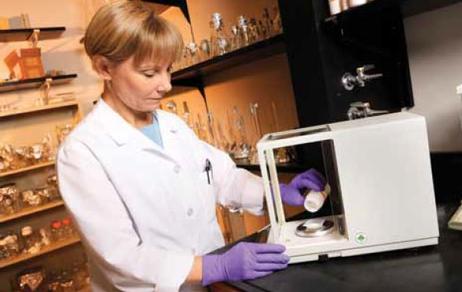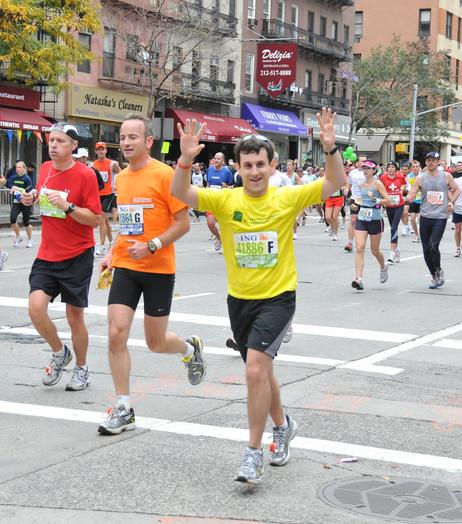

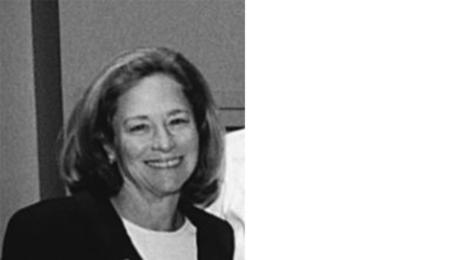
Bonnie Strauss begins experiencing neck spasms that force her to seek medical attention. Bonnie visits all types of doctors, from psychiatrists to chiropractors, seeking answers. In 1984, five years after onset of symptoms, Bonnie is connected with a neurologist in New York City, who properly diagnoses her with spasmodic torticollis, a form of dystonia characterized by involuntary contractions of the muscles in the neck. Bonnie comes to strongly believe there is a link between dystonia and Parkinson's, having seen her mother and grandmother both live with Parkinson's disease.
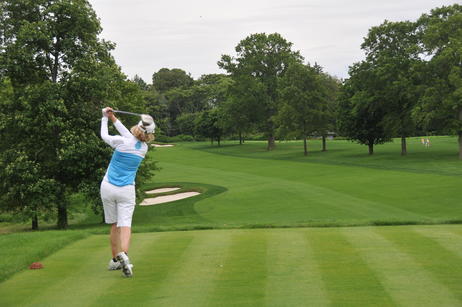
Bonnie hosts the inaugural Dystonia Golf Invitational at the Century Country Club in Westchester, New York. The Hedi Kravis Ruger Memorial Golf Invitational will become one of the most successful fundraisers in dystonia research, raising $1 million annually.

Bonnie establishes The Bachmann-Strauss Dystonia and Parkinson Foundation with her father, Louis Bachmann, convinced she can make an even bigger impact on research and public awareness of dystonia.
The Foundation will go on to fund more than 235 research grants to leading dystonia and Parkinson's researchers around the globe, as well as found four Centers of Excellence for comprehensive patient care.
"We try to raise public awareness and raise funds for research. There is no known cause and no cure yet, so there is a lot of work to be done."
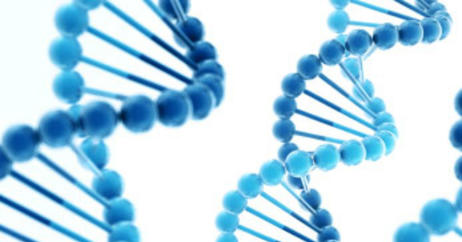
Partially supported by a grant from Bachmann-Strauss, a team led by Xandra Breakefield, PhD, identifies and clones DYT-1, the first dystonia-implicated gene, opening a floodgate of research progress.
Bachmann-Strauss support will play an instrumental role in the discovery of several additional dystonia-implicated genes, including TUBB-4 GNAL and AN03.
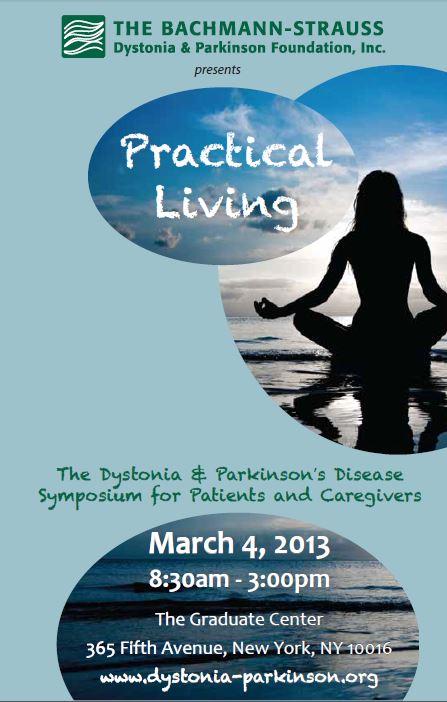
Bachmann-Strauss' first Patient Symposium, a lecture about dystonia and Parkinson's disease, is held and soon develops into a day-long event providing comprehensive support to patients and caregivers. In 2006, the symposium will expand to two days, establishing a second day dedicated to a DBS reunion for patients who've undergone the surgery and for those considering it.

Bachmann-Strauss holds its first Think Tank on dystonia and Parkinson's disease. This international group of neurologists, geneticists and pharmacologists meets annually in New York City from 2001 to 2014 to discuss current issues in the field of dystonia and Parkinson's disease research, becoming a critical input for the Bachmann-Strauss scientific advisory board in determining next steps in future research.
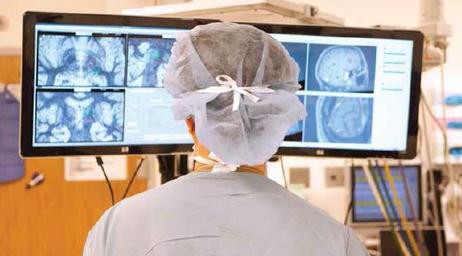
Bachmann-Strauss funds study of low-frequency Deep Brain Stimulation (DBS) for treatment of primary DYT-1 dystonia. The results of this work, published three years later, note significant improvement in motor function among patients treated with lower stimulation frequencies; they also benefit from longer battery life.

Working with the Bachmann-Strauss Foundation, 10-year-old Jake Silverman, who is living with dystonia, and his family create a bike ride to raise awareness and funds for dystonia research. "Jake's Ride" quickly grows into one of the field's most important community fundraisers. By 2014, it crosses the $2-million mark in fundraising and enables support of 21 research grants and four movement disorder fellowships.
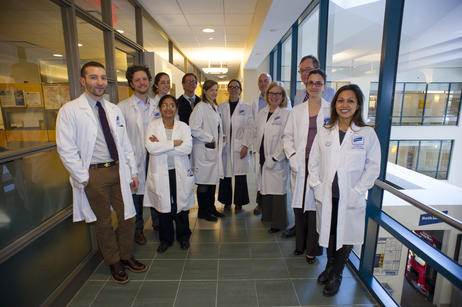
To address the complex problems facing dystonia patients, Bachmann-Strauss founds its first Bachmann-Strauss Center of Excellence at Beth Israel Mount Sinai Medical Center Department of Neurology, focusing on comprehensive care for people living with dystonia. By 2013, three more centers are established, each incorporating the relationship between dystonia and Parkinson's disease.
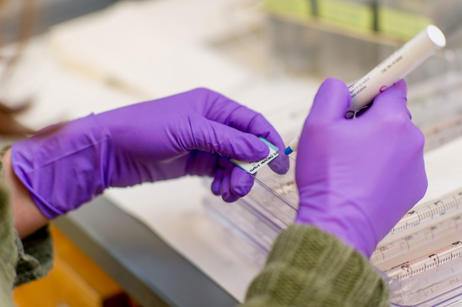
With funding from Bachmann-Strauss, MJFF awards a research grant resulting in understanding mutations in the Park 9 gene and their link to dystonia and Parkinson's symptoms. The Bachmann-Strauss Foundation's funding to The Michael J. Fox Foundation by 2014 will total more than $500,000 enabling instrumental progress in the study of dystonia, dyskinesia and Parkinson's disease.

With funding from Bachmann-Strauss, researchers discover a protein that plays a role in how the previously discovered parkin genetic mutation leads to cell death and Parkinson's progression. The study observes that the mutation blocks parkin's ability to degrade proteins, leading to accumulation of the protein PARIS, which limits production of the protective protein PGC-1alpha. Without that defense, brain cells are susceptible to disease.

Then-New York City Mayor Michael Bloomberg, a former Board member and longtime supporter of the Bachmann-Strauss Foundation, declares Monday, June 18, 2012, "Dystonia Call for Action Day" at the Foundation's 20th anniversary Golf Invitational. Bachmann-Strauss has drawn the attention and support of celebrities and notable figures nationwide.

Bachmann-Strauss' commitment to funding regenerative medicine for the benefit of people living with dystonia results in two interrelated grants to researchers working with induced pluripotent stem cells (iPSC). The researchers are tasked with collaborating on the development of scientific infrastructure to collect and analyze iPSC for dystonia, and the generation of specific cell lines to study different genetic forms of the disease.
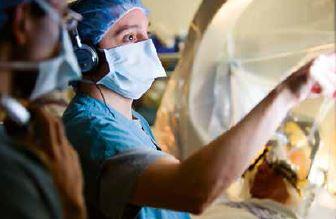
Bachmann-Strauss establishes three more Centers of Excellence at The University of Alabama at Birmingham, The University of California, San Francisco, and The University of Florida. These Centers focus on care for both dystonia and Parkinson's disease.

Bachmann-Strauss becomes one of 16 Clinical Trial Recruitment Community Partners with Fox Trial Finder, a coalition of high-profile research organizations around the world dedicated to raising awareness about the need for clinical trial participants, educating about what it means to participate in research and providing actionable steps that anyone can take to get involved in Parkinson's research.
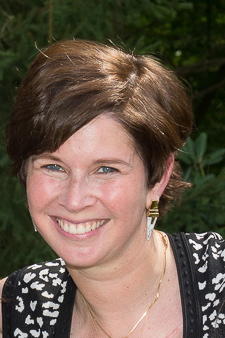
Attorney Allison London, a Bachmann-Strauss Board member, Young Leadership Council chair and prominent dystonia advocate, publishes "Disease and the Public Eye," an opinion piece, in the New York Times. "Michael J. Fox has done as much for dystonia awareness as anyone in the history of the disease," she writes in part.
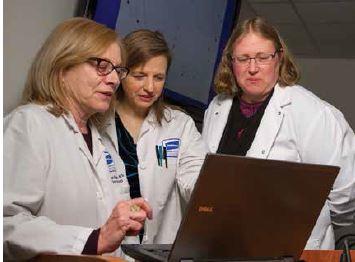
On the front lines of patient care, the Centers of Excellence combine the clinical experience with opportunities to advance research by collaborating on a $300,000 investigation into the responsiveness to DBS among patients.
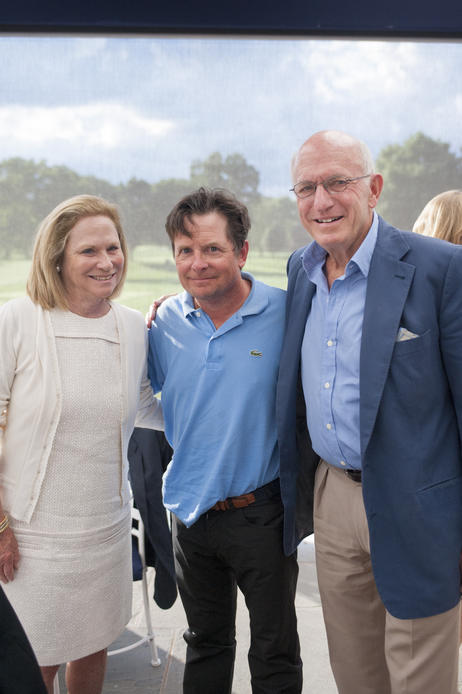
Bachmann-Strauss forms a new collaborative research alliance with The Michael J. Fox Foundation to raise awareness and deepen investment in advancing dystonia and Parkinson's disease research. The alliance, taking effect January 2015, refocuses Bachmann-Strauss funding in support of a newly established annual prize, the Bachmann-Strauss Prize for Excellence in Dystonia Research.
"Partnering with BSDPF allows us to deepen our work together in support of high-impact scientific findings that will benefit both dystonia and Parkinson's patients."
CEO of The Michael J. Fox Foundation
On May 13, 2015, the inaugural Bachmann-Strauss Prize for Excellence in Dystonia Research was awarded to Xandra O. Breakefield, PhD, professor of neurology at Harvard Medical School and geneticist at Massachusetts General Hospital, for her groundbreaking discoveries in the field of dystonia genetics. The gala event, held in New York City, also celebrated the achievements of the Bachmann-Strauss Dystonia and Parkinson Foundation and its founder, Bonnie Strauss. The event raised $1.7 million to support dystonia and Parkinson's research
The second Bachmann-Strauss Prize for Excellence in Dystonia Research was awarded to Susan Bressman, MD, chair of the Department of Neurology at Mount Sinai Beth Israel, and Laurie Ozelius, PhD, associate neuroscientist and associate professor of neurology at Massachusetts General Hospital and Harvard Medical School. The researchers, who have collaborated for 30 years, were chosen for their work in dystonia genetics. The prizes were conferred in New York City on November 12, 2016.

Bonnie Strauss begins experiencing neck spasms that force her to seek medical attention. Bonnie visits all types of doctors, from psychiatrists to chiropractors, seeking answers. In 1984, five years after onset of symptoms, Bonnie is connected with a neurologist in New York City, who properly diagnoses her with spasmodic torticollis, a form of dystonia characterized by involuntary contractions of the muscles in the neck. Bonnie comes to strongly believe there is a link between dystonia and Parkinson's, having seen her mother and grandmother both live with Parkinson's disease.

Bonnie hosts the inaugural Dystonia Golf Invitational at the Century Country Club in Westchester, New York. The Hedi Kravis Ruger Memorial Golf Invitational will become one of the most successful fundraisers in dystonia research, raising $1 million annually.

Bonnie establishes The Bachmann-Strauss Dystonia and Parkinson Foundation with her father, Louis Bachmann, convinced she can make an even bigger impact on research and public awareness of dystonia.
The Foundation will go on to fund more than 235 research grants to leading dystonia and Parkinson's researchers around the globe, as well as found four Centers of Excellence for comprehensive patient care.
"We try to raise public awareness and raise funds for research. There is no known cause and no cure yet, so there is a lot of work to be done."

Partially supported by a grant from Bachmann-Strauss, a team led by Xandra Breakefield, PhD, identifies and clones DYT-1, the first dystonia-implicated gene, opening a floodgate of research progress.
Bachmann-Strauss support will play an instrumental role in the discovery of several additional dystonia-implicated genes, including TUBB-4 GNAL and AN03.

Bachmann-Strauss' first Patient Symposium, a lecture about dystonia and Parkinson's disease, is held and soon develops into a day-long event providing comprehensive support to patients and caregivers. In 2006, the symposium will expand to two days, establishing a second day dedicated to a DBS reunion for patients who've undergone the surgery and for those considering it.

Bachmann-Strauss holds its first Think Tank on dystonia and Parkinson's disease. This international group of neurologists, geneticists and pharmacologists meets annually in New York City from 2001 to 2014 to discuss current issues in the field of dystonia and Parkinson's disease research, becoming a critical input for the Bachmann-Strauss scientific advisory board in determining next steps in future research.

Bachmann-Strauss funds study of low-frequency Deep Brain Stimulation (DBS) for treatment of primary DYT-1 dystonia. The results of this work, published three years later, note significant improvement in motor function among patients treated with lower stimulation frequencies; they also benefit from longer battery life.

Working with the Bachmann-Strauss Foundation, 10-year-old Jake Silverman, who is living with dystonia, and his family create a bike ride to raise awareness and funds for dystonia research. "Jake's Ride" quickly grows into one of the field's most important community fundraisers. By 2014, it crosses the $2-million mark in fundraising and enables support of 21 research grants and four movement disorder fellowships.

To address the complex problems facing dystonia patients, Bachmann-Strauss founds its first Bachmann-Strauss Center of Excellence at Beth Israel Mount Sinai Medical Center Department of Neurology, focusing on comprehensive care for people living with dystonia. By 2013, three more centers are established, each incorporating the relationship between dystonia and Parkinson's disease.

With funding from Bachmann-Strauss, MJFF awards a research grant resulting in understanding mutations in the Park 9 gene and their link to dystonia and Parkinson's symptoms. The Bachmann-Strauss Foundation's funding to The Michael J. Fox Foundation by 2014 will total more than $500,000 enabling instrumental progress in the study of dystonia, dyskinesia and Parkinson's disease.

With funding from Bachmann-Strauss, researchers discover a protein that plays a role in how the previously discovered parkin genetic mutation leads to cell death and Parkinson's progression. The study observes that the mutation blocks parkin's ability to degrade proteins, leading to accumulation of the protein PARIS, which limits production of the protective protein PGC-1alpha. Without that defense, brain cells are susceptible to disease.

Then-New York City Mayor Michael Bloomberg, a former Board member and longtime supporter of the Bachmann-Strauss Foundation, declares Monday, June 18, 2012, "Dystonia Call for Action Day" at the Foundation's 20th anniversary Golf Invitational. Bachmann-Strauss has drawn the attention and support of celebrities and notable figures nationwide.

Bachmann-Strauss' commitment to funding regenerative medicine for the benefit of people living with dystonia results in two interrelated grants to researchers working with induced pluripotent stem cells (iPSC). The researchers are tasked with collaborating on the development of scientific infrastructure to collect and analyze iPSC for dystonia, and the generation of specific cell lines to study different genetic forms of the disease.

Bachmann-Strauss establishes three more Centers of Excellence at The University of Alabama at Birmingham, The University of California, San Francisco, and The University of Florida. These Centers focus on care for both dystonia and Parkinson's disease.

Bachmann-Strauss becomes one of 16 Clinical Trial Recruitment Community Partners with Fox Trial Finder, a coalition of high-profile research organizations around the world dedicated to raising awareness about the need for clinical trial participants, educating about what it means to participate in research and providing actionable steps that anyone can take to get involved in Parkinson's research.

Attorney Allison London, a Bachmann-Strauss Board member, Young Leadership Council chair and prominent dystonia advocate, publishes "Disease and the Public Eye," an opinion piece, in the New York Times. "Michael J. Fox has done as much for dystonia awareness as anyone in the history of the disease," she writes in part.

On the front lines of patient care, the Centers of Excellence combine the clinical experience with opportunities to advance research by collaborating on a $300,000 investigation into the responsiveness to DBS among patients.

Bachmann-Strauss forms a new collaborative research alliance with The Michael J. Fox Foundation to raise awareness and deepen investment in advancing dystonia and Parkinson's disease research. The alliance, taking effect January 2015, refocuses Bachmann-Strauss funding in support of a newly established annual prize, the Bachmann-Strauss Prize for Excellence in Dystonia Research.
"Partnering with BSDPF allows us to deepen our work together in support of high-impact scientific findings that will benefit both dystonia and Parkinson's patients."
CEO of The Michael J. Fox Foundation
On May 13, 2015, the inaugural Bachmann-Strauss Prize for Excellence in Dystonia Research was awarded to Xandra O. Breakefield, PhD, professor of neurology at Harvard Medical School and geneticist at Massachusetts General Hospital, for her groundbreaking discoveries in the field of dystonia genetics. The gala event, held in New York City, also celebrated the achievements of the Bachmann-Strauss Dystonia and Parkinson Foundation and its founder, Bonnie Strauss. The event raised $1.7 million to support dystonia and Parkinson's research
The second Bachmann-Strauss Prize for Excellence in Dystonia Research was awarded to Susan Bressman, MD, chair of the Department of Neurology at Mount Sinai Beth Israel, and Laurie Ozelius, PhD, associate neuroscientist and associate professor of neurology at Massachusetts General Hospital and Harvard Medical School. The researchers, who have collaborated for 30 years, were chosen for their work in dystonia genetics. The prizes were conferred in New York City on November 12, 2016.
